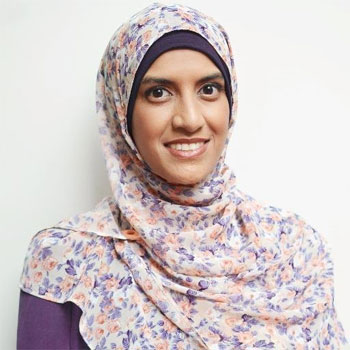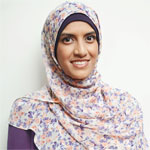Heba Shaheed Endometriosis Interview

Tips for Women Suffering from Endometriosis
Heba Shaheed is the co-founder of The Pelvic Expert, where she provides online exercise, nutrition and pelvic floor physiotherapy programs for mothers, pregnant women, and women with pelvic pain and endometriosis. Heba has over 7 years experience in women's health physiotherapy, nutrition and exercise.
thepelvicexpert.com
facebook.com/thepelvicexpert
instagram.com/thepelvicexpert
Question: What inspired your passion for learning about women's health?
Heba Shaheed: I love helping people find solutions to their problems. I myself experienced pelvic pain which worsened to chronic pain by the time I was 21. I was then diagnosed with endometriosis at the age of 25, which inspired me to learn more about pelvic pain and menstrual issues. I was on the search for solutions to my own female pain, and now I help other women overcome theirs.
Question: Can you talk us through what you do as The Pelvic Expert?
Heba Shaheed: The Pelvic Expert aims to provide education and empowerment to women suffering from pelvic issues such as pain, incontinence and prolapse. I write about pelvic health based on my personal and professional experience. And I create e-learning programs for women with pelvic pain, for pregnant women and for mothers.
Our online programs are holistic and research-based, and provide pelvic health education, nutrition for hormone balancing, therapeutic exercise (with a focus on pelvic floor), pain education and self-care advice. I believe health and wellbeing requires a whole body systems approach.
Question: What's a typical day like, for you?
Heba Shaheed: I juggle women's health advocacy with entrepreneurial life with motherhood. I founded The Pelvic Expert in 2016 at around the same time that I fell pregnant. So the day usually starts off with my 8 month old daughter demanding attention.
Currently we are in production of our pelvic pain and pregnancy programs. And we're also running a trial of our Mother's Recovery program with HCF members. So there's a lot of moving parts, including a baby who is addicted to breast milk.
Question: Why do some women experience painful sex?
Heba Shaheed: The muscles in the vagina - the pelvic floor muscles - can become too tight. Just like the muscles in the neck can become sore to touch if they are tight, similarly the muscles in the pelvic floor can become painful.
Question: What is Endometriosis?
Heba Shaheed: Endometriosis occurs when cells similar to the ones that make up the lining of the uterus exist in other places as well. They can be on your ovaries, on your fallopian tubes, on the bowels, and even on the lungs. When you have a period, these cells bleed too but there's nowhere for them to leave the body, so they build up causing inflammation, scarring, adhesions, pain and infertility.
Question: What are the main signs and symptoms associated with Endometriosis?
Heba Shaheed: Women with endometriosis can have a varied assortment of symptoms which include:
Period pain
Heavy, prolonged and irregular periods including spotting between periods
Pelvic pain
Painful sex (during and after)
Painful urination during periods
Pain with bowel movements
Bloating ('endo belly")
Food intolerances e.g. dairy, wheat, soy and sugars
Constipation/diarrhoea
Infertility
Fatigue
Question: How is Endometriosis diagnosed?
Heba Shaheed: The only way to diagnose endometriosis is through a laparoscopic surgery. However if a woman has painful periods, there is a high chance she may have endometriosis.
Question: What treatments are available for Endometriosis?
Heba Shaheed: Endometriosis requires an advanced laparoscopic surgeon to do excision surgery to remove it. However women with endo require a holistic approach to live well. This includes nutrition for hormone balancing, exercise such as yoga for lengthening and relaxation, pain education, stress management, physiotherapy to release tight pelvic floor muscles, and may also need hormone treatments such as the Mirena or the pill.
Question: How does stress aggravate Endometriosis?
Heba Shaheed: Stress causes more inflammation and more pain, which lead to more stress in a vicious cycle. Also the more stress hormone, cortisol, a woman is producing, the less progesterone her body has, because progesterone breaks down into cortisol.
Endometriosis is an estrogen-dominant condition- this means that it thrives when the ratio of estrogen to progesterone is high. So it is really important that a woman doesn't continue to burn through progesterone to form cortisol.
Heba Shaheed: The best way to contact me is through my website: https://thepelvicexpert.com
Want more strategies on how to manage pelvic pain and endometriosis? Take the Free 7-Day Challenge with The Pelvic Expert here: https://thepelvicexpert.com/fearlessfree/
Interview by Brooke Hunter
Have You Seen This?
MORE




